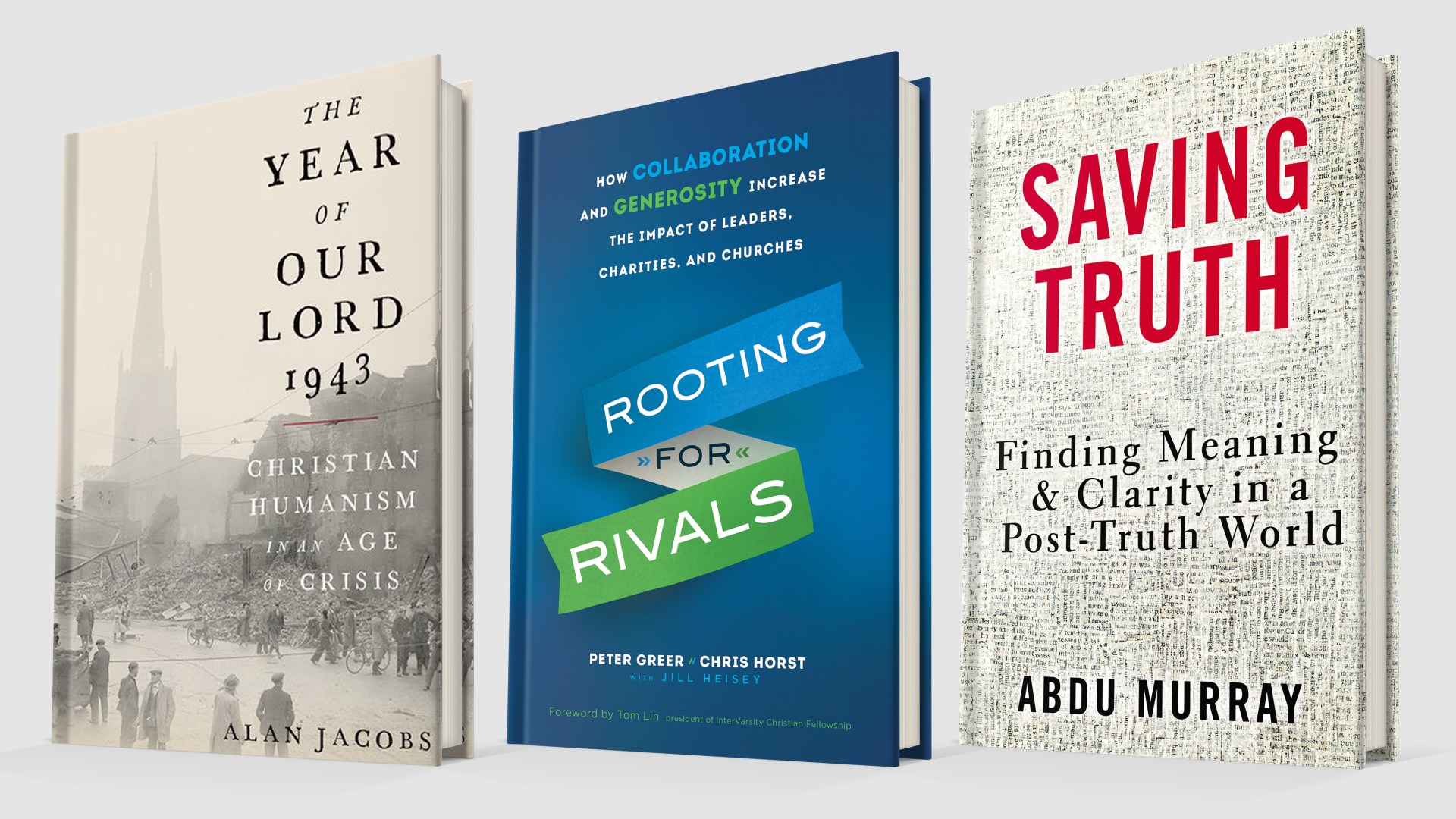The Year of Our Lord 1943: Christian Humanism in an Age of Crisis
Alan Jacobs (Oxford University Press)
As World War II shifted in favor of the Allied powers, Western leaders began steeling themselves for the task of building a more durable civilization—one that would never again sink into such calamity. For the Christian thinkers profiled by Baylor University Honors Program professor Alan Jacobs in this book, “the war raised . . . a pressing set of questions about the relationship between Christianity and the Western democratic social order, and especially about whether Christianity was uniquely suited to the moral underpinning of that order.” Jacobs studies the roadmaps to moral and spiritual renewal developed by Jacques Maritain, T. S. Eliot, C. S. Lewis, W. H. Auden, and Simone Weil.
Peter Greer and Chris Horst, with Jill Heisey (Bethany House)
In 2014, Greer and Horst (the CEO and director of development, respectively, at HOPE International) published Mission Drift, a book examining why faith-based organizations sometimes slip away from their founding missions. During their research, they discovered that the leaders of organizations that managed to remain faithful shared a certain mindset: “They acted as if we weren’t leaders of rival organizations competing for funding or recognition but friends on the same team working toward the same goal.” Rooting for Rivals commends this approach as an antidote to the sort of “territorialism” that can inhibit faith-based organizations from locking arms in pursuit of kingdom goals.
Saving Truth: Finding Meaning and Clarity in a Post-Truth World
Abdu Murray (Zondervan)
Oxford Dictionaries launched a wave of anguished think pieces by announcing its 2016 word of the year was post-truth. Abdu Murray, North American director of Ravi Zacharias International Ministries, argues that the post-truth mindset has “blossomed into a Culture of Confusion,” where “confusion is embraced as a virtue and clarity shunned as a sin.” Saving Truth shows how Christian belief can provide a sturdy anchor in a society drifting away from shared principles of reason, morality, and justice.










